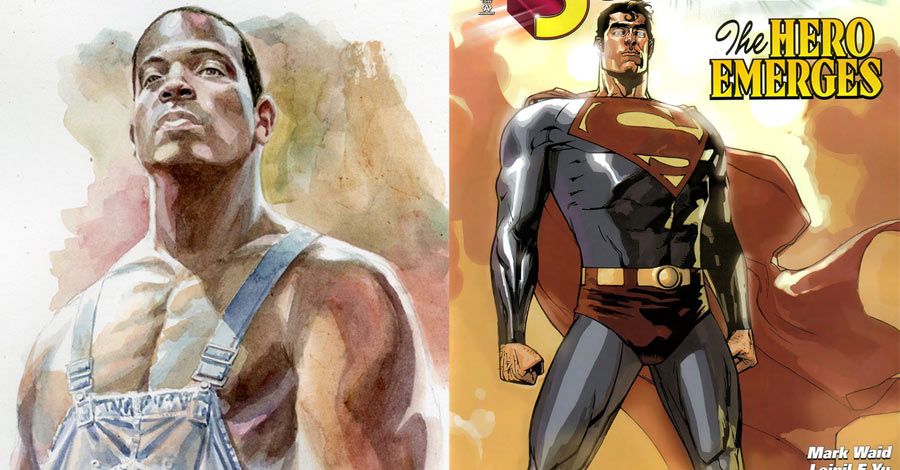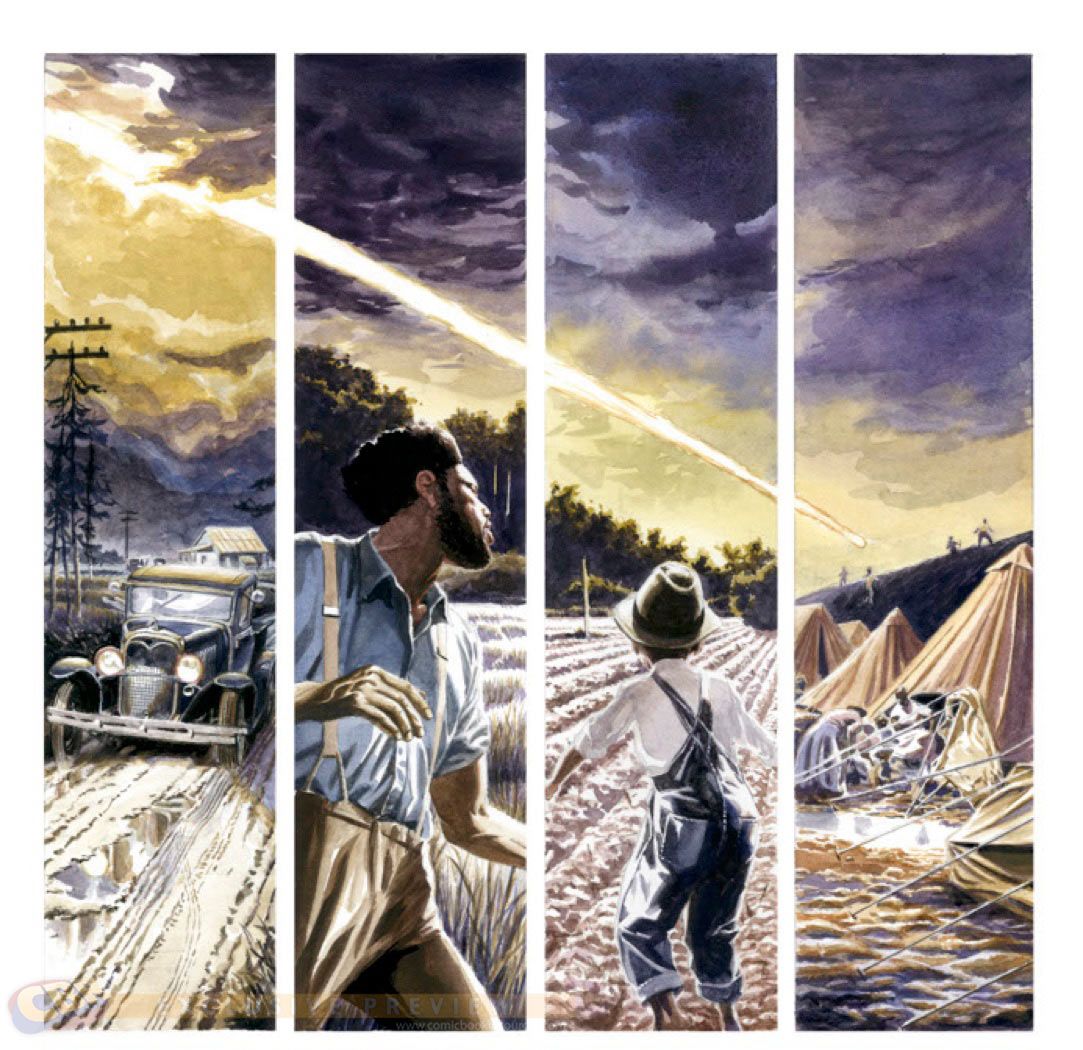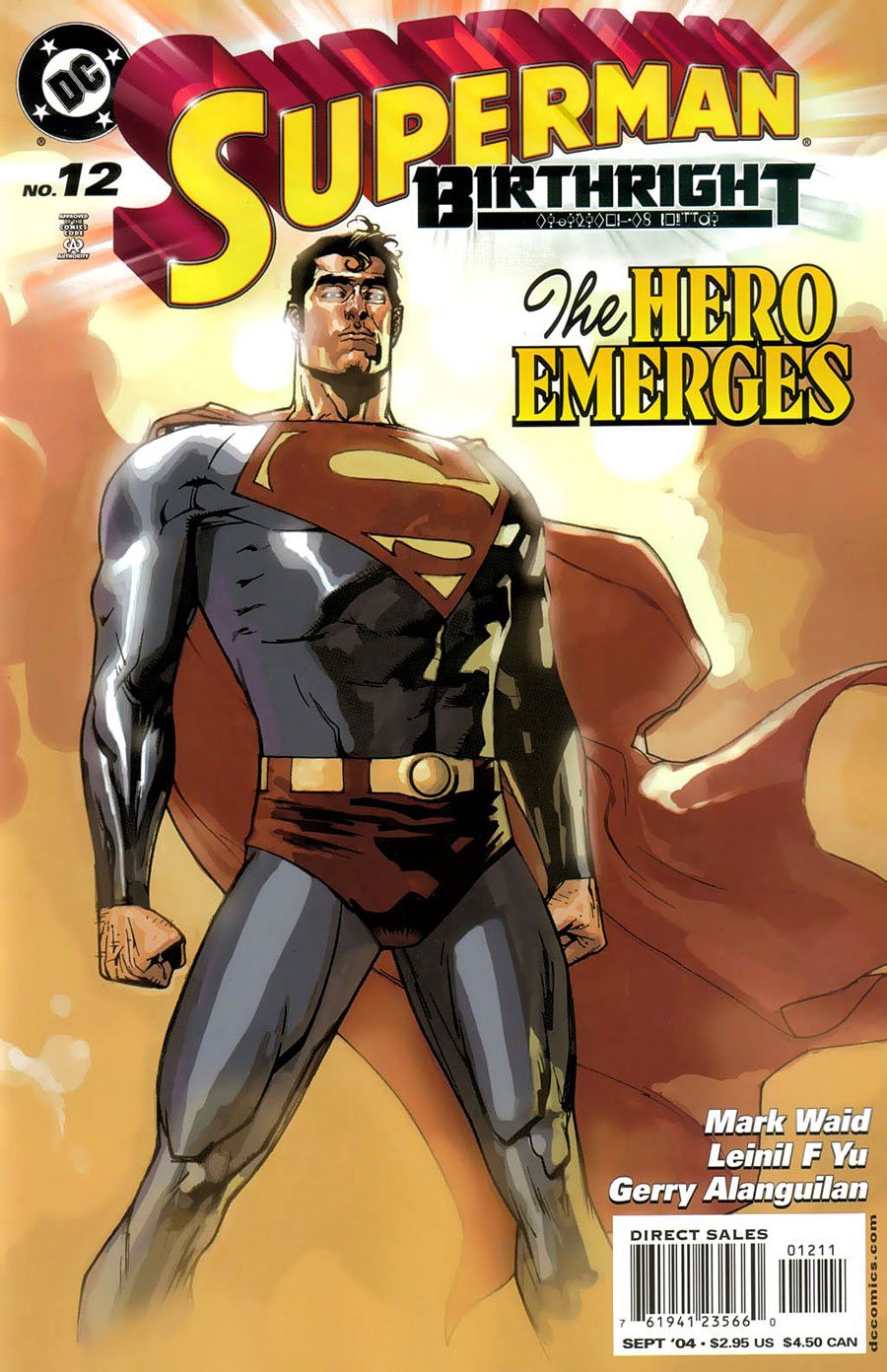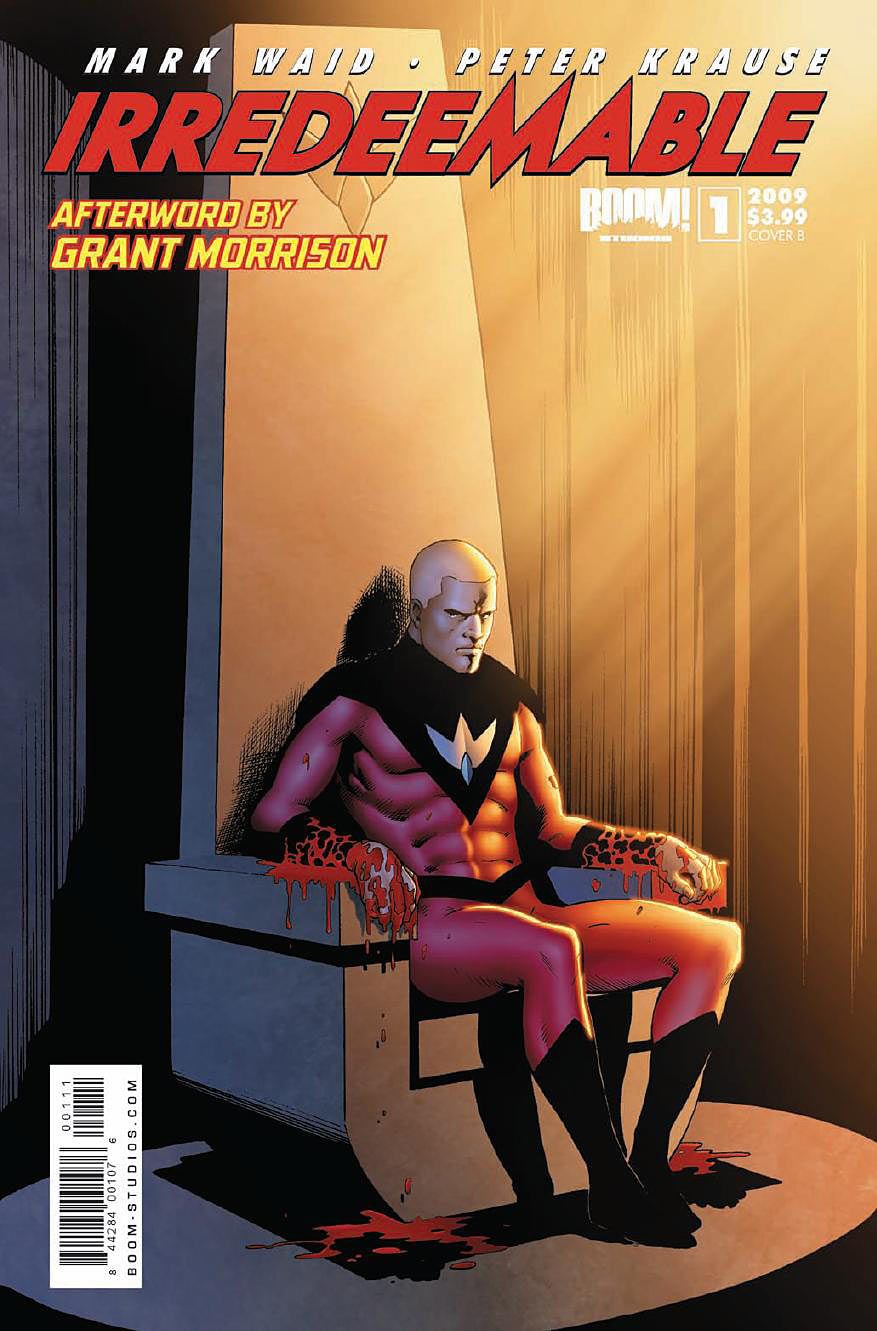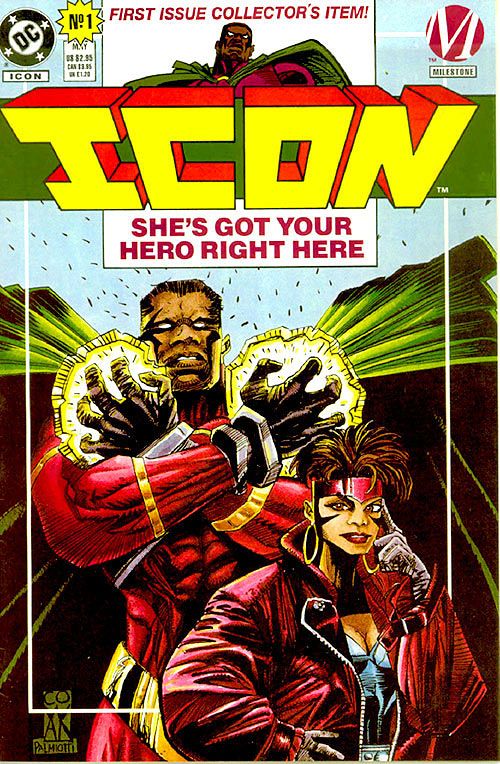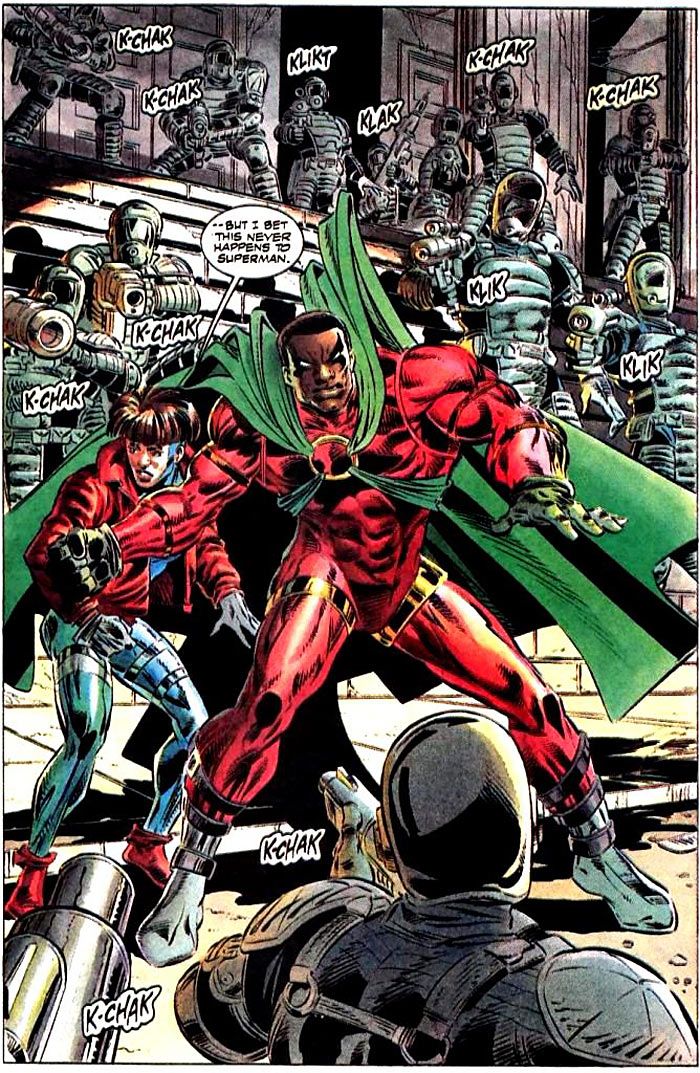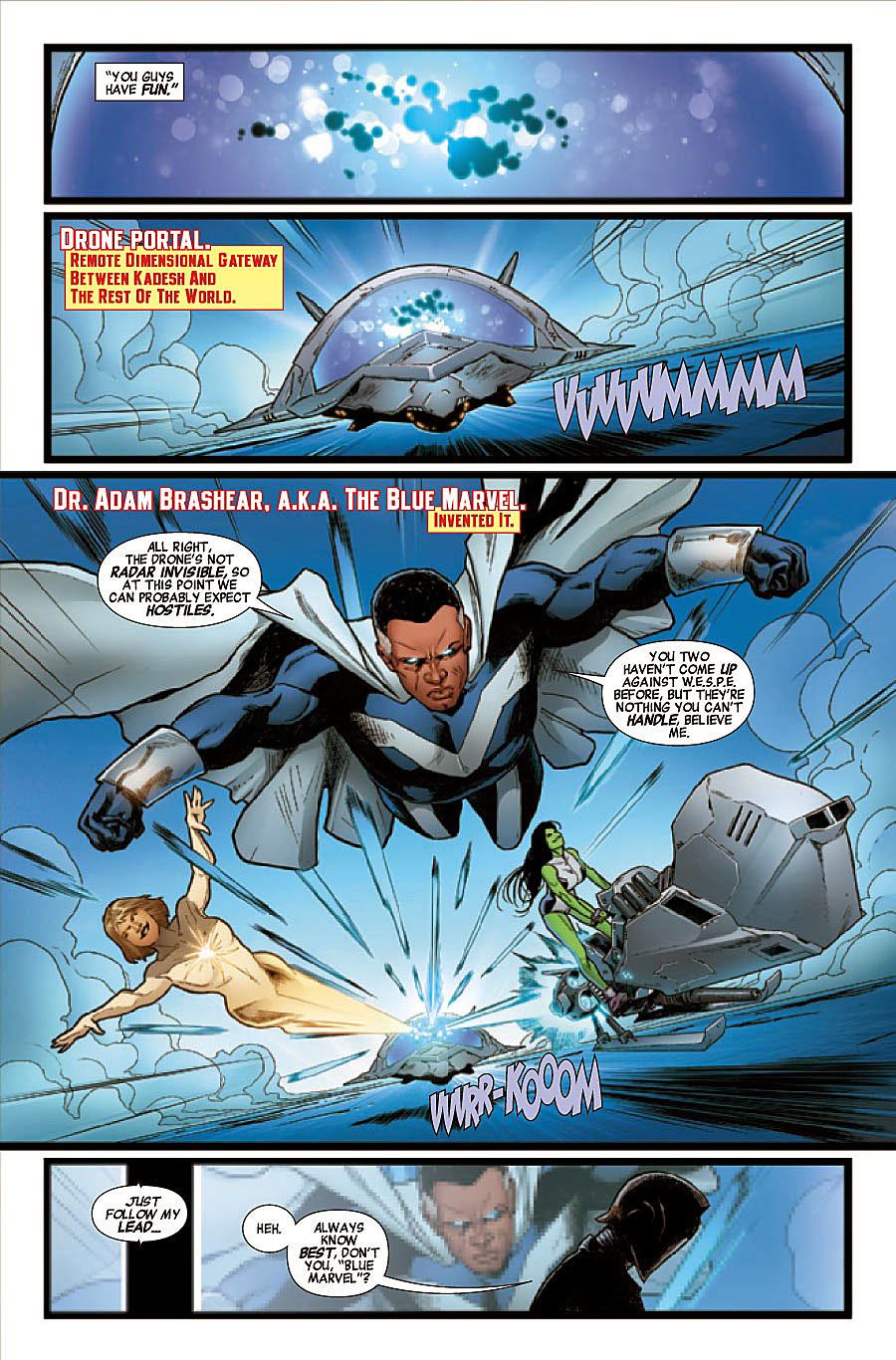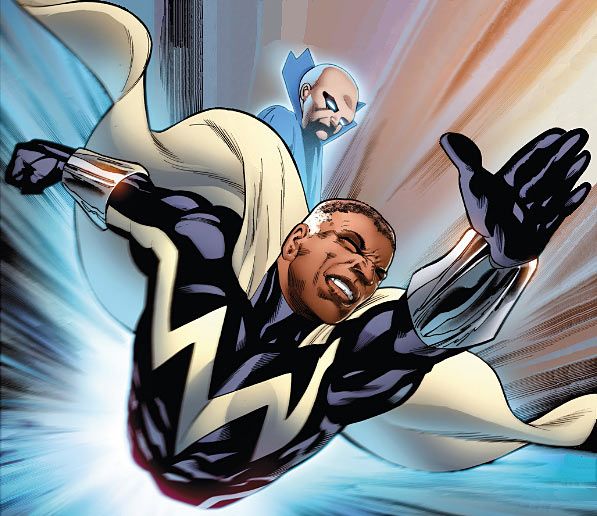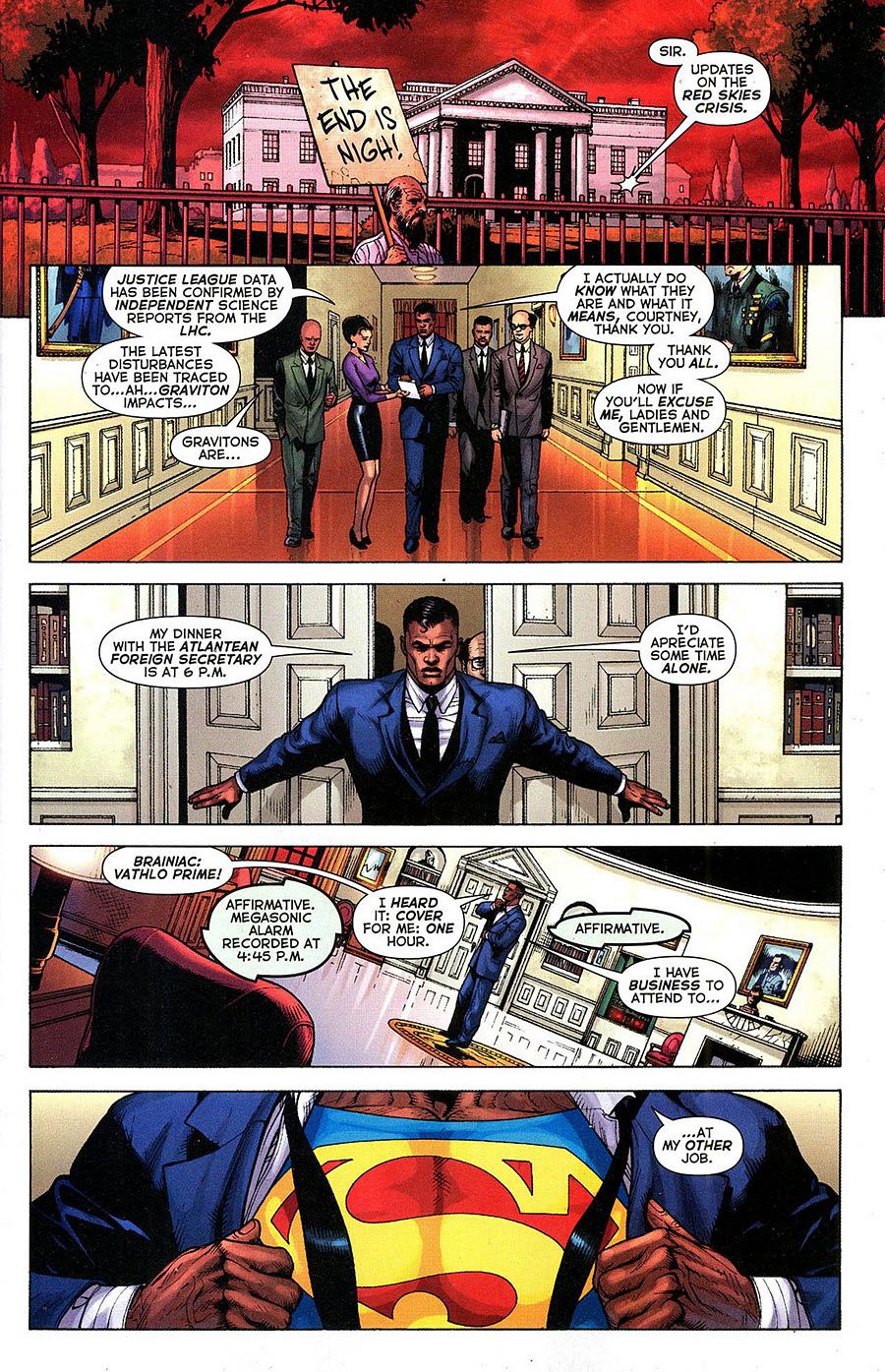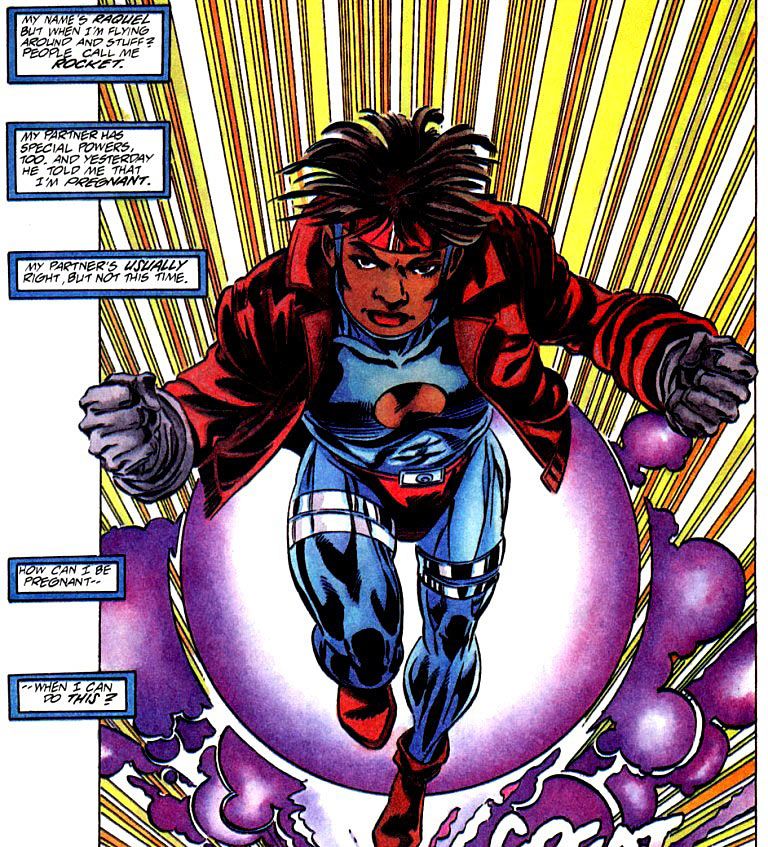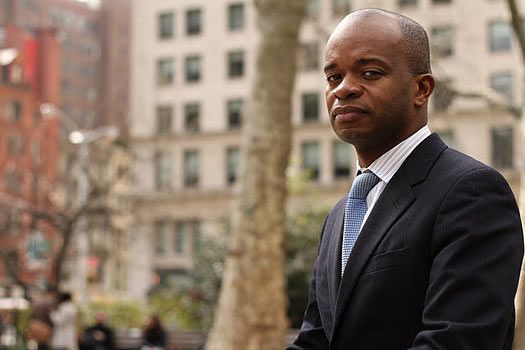Last week, publisher BOOM! Studios revealed a new comic book project that I found very interesting.
The new series is called "Strange Fruit," written by Mark Waid and illustrated by J.G. Jones. The intriguing teaser summary of this story is as follows from the publisher's solicitation text:
"It's 1927 in the town of Chatterlee, Mississippi, drowned by heavy rains. The Mississippi River is rising, threatening to break open not only the levees, but also the racial and social divisions of this former plantation town. A fiery messenger from the skies heralds the appearance of a being, one that will rip open the tensions in Chatterlee. Savior, or threat? It depends on where you stand. All the while, the waters are still rapidly rising..."
Upon reading this text, comic book fans immediately viewed it as an alternate take on the origin of Superman, probably the most well-known superhero in global culture.
EXCLUSIVE: First Details and New Art From Mark Waid and JG Jones' "Strange Fruit"
Significantly more interesting is that the story's historical setting will show how this savior tale is juxtaposed against Black American history.
At a time in the comic book and entertainment industries when the demand for stories about characters other than The Heterosexual Caucasian Male continues to increase week after week, "Strange Fruit" could be one of BOOM! Studios' attempts to address that fan desire for diverse product.
Writer Mark Waid has been an influential person in the American superhero comic book market and genre, and has written both the original Superman in the "Superman: Birthright" maxi-series and seminal alternate future series "Kingdom Come" for DC Comics, along with aesthetically-similar characters such as his previous BOOM! Studios series, "Irredeemable."
Illustrator J.G. Jones has visualized groundbreaking work from DC Comics' superhero Armageddon story, "Final Crisis," to Marvel's "Black Widow" (you all know who she is) to Top Cow's graphic novel "Wanted," source material for the popular action film.
Both men are at the top of their game, so the book will undoubtedly be good, but the sentiment I observed a fair amount of on social media was how the press surrounding this story made no mention or reference to another Black superman, one known by a vocal group of fans and having appeared in comic books and a popular animated series.
Icon.
Co-created by the deceased Dwayne McDuffie, known for writing the animated shows "Justice League Unlimited," "Ben 10" and "Static Shock," and writing characters ranging from Superman (heh) to Batman to the Fantastic Four to Spider-Man for top comic book publishers Marvel Comics and DC Comics, "Icon" was one of the launch titles for Milestone Media, Inc. in 1993. Milestone Media, Inc. introduced a superhero-filled universe populated by characters from many different ethnicities and backgrounds, and McDuffie was the company's Co-Founder and Editor-in-chief.
As Wikipedia succinctly states about the premise of Icon, "In 1839, an alien starliner malfunctioned and exploded, jettisoning a life-pod in the middle of a cotton field in the American South. The pod automatically altered the appearance of its passenger, named Arnus, to mimic the first sentient life-form who discovered him. That life-form was an enslaved black woman named Miriam, who saw the pod crash land and adopted Arnus as her son."
The similarity to Superman mostly starts and ends there, as the alien being who became the superhero Icon was not the main character of the Milestone comic book series. He was the realization of an idea by a Black teenage girl named Raquel Ervin, a writer who would become Icon's crime-fighting partner "The Rocket," and stay by Icon's side to remind him of what and who he was fighting for, what he symbolized to people in need of inspiration and hope.
Icon was not a self-sufficient and widely-accepted superhero in his community, and his further differences from Superman were revealed on occasions in which Icon actually fought Superman, once during the Milestone/DC Comics event "Worlds Collide" and once in DC Comics' flagship superhero team series "Justice League of America."
Icon and Rocket have appeared in the critically-acclaimed, fan favorite animated series "Young Justice" by Warner Bros., and this appearance gave him visibility to a whole new generation of fans.
Also, the company that produced Icon, Milestone Media, Inc., has announced a return and expansion, in which known characters like Icon could resurface in some high-profile projects, including but not limited to comic books.
Hudlin & Cowan on "Milestone 2.0": "We're Not in the Nostalgia Business"
Icon keeps coming back.
In between the introduction of Icon and the news of "Strange Fruit," a number of other writers have tackled the idea of the Black superman.
Author, actor and producer Kevin Grevioux co-created the character Blue Marvel, who premiered in the Marvel Comics miniseries "Adam: Legend of the Blue Marvel."
While not an alien being who landed on Earth in a space vessel, The Blue Marvel was a Black superhero who operated during the 1960s, a notable time in history for Black Americans. Because the '60s were a high point of racism in America, the idea of a Black superhuman flying through the sky with the power to save or destroy hundreds of thousands of lives is as controversial and juicy as you would expect.
Upon strong "request" from the President of the United States, The Blue Marvel was asked to hang up his cape, to prevent the possibility of social unrest within America. Because you know, everything was just peachy, otherwise.
The Blue Marvel has since returned to the Marvel Universe and monthly comics in the Marvel series' "Mighty Avengers" and its follow-up, "Captain America and the Mighty Avengers."
DC Comics, itself the publisher of the original Superman, has also taken on the idea of the Black superman.
Writer Grant Morrison, known for tapping into the social Zeitgeist for his stories, gave fans a Black President whose secret identity was that of Superman for the aforementioned "Final Crisis." It was a Superman from a parallel universe, but still and yet, that premise and the obvious reference to President Barack Obama turned out to be provocative, representing the hope projected onto him by many Black Americans, their idealization of him, in one moment when hands go for a shirt to reveal the true nature underneath.
The publisher created another Black Superman in their "Earth 2" series, about yet another parallel Earth with a Black man sporting the iconic "S" on his chest, along with full body suit and flowing cape.
The Black superman keeps coming back, and you'll be seeing other versions of the idea, as well, from independent Black creators with their own take on the premise, the myth.
Apparently, the combination of the Black man, his strength and capacity to endure hardship, melds with the idea of a being unbound by gravity, in a way that is marketable.
And yet, the unasked questions are:
Who "owns" the Black Superman?
Who gets to tell his story?
Who has the point of view, offering the greatest validity or imagined right to provide the definitive tale?
Apparently, whoever has the resources and right-minded intentions.
For the Black creative community, Dwayne McDuffie and Kevin Grevioux are the most notable examples, with both of their characters proving to have long life and legs.
The reality is that Black creators are not being invited to contribute to this potent and popular idea, that of the Black superman, by publishers with the greatest impact on the comic book industry.
That, on top of the lack of industry self-reference, as it relates to the Icon character, understandably stings a portion of the Black comic book community, creator and fan alike.
But a few things occurred to me when I read the news on "Strange Fruit."
First, whoever said it's going to be another Black Superman?
People assume this because of the teaser info, but the story could go in a number of directions, and Mark Waid has not become a writer of his caliber and reputation by being predictable with his stories.
I expect surprises along the way, and a consideration and sensitivity which fans know Waid to have.
Second, when I think about the obstacles facing Black people today, from murder due to fashion choice, to murder on the part of bad apples in an organization pledged to serve and protect, to a lack of education in general subjects much less the STEM subjects, to health issues due to living within food deserts, to a growing national wealth divide, I really wonder if the Black Superman is highly relevant.
Interesting? Clearly.
Relevant?
Speaking to the hopes and power fantasies of the Black man?
Maybe it's a shellgame. The aesthetic and mythological markers, being used to get you to look at issues you might usually avoid.
The same way the French graphic novel detective series "Blacksad" by Juan DÃaz Canales and Juanjo Guarnido, among others, uses anthropomorphic fiction to get people to read about prejudice, or Brian K. Vaughan and Fiona Staples space opera "Saga" gets readers to accept an interracial relationship of a woman with a caramel complexion and a man with the complexion of a Caucasian man without a second thought.
Maybe that's what the means of using the recognizable elements of the Superman idea is about.
Writers like Dwayne McDuffie and Kevin Grevioux were clever enough to construct their heroes and stories in a way that the Black superman's existence did not change reality or life on Earth to a point where it failed to identify with issues and struggles present in the lives of people of color.
Let's see what "Strange Fruit" does.
Let's see what stories to come from other creators with superhuman Black men in full body costumes and capes do.
See what they will trick us into learning.
Joseph Phillip Illidge is a public speaker on the subjects of race, comics, and the corporate politics of diversity. In addition to his coverage by the BBC and Publishers Weekly, Joseph has been a speaker at John Jay College of Criminal Justice, Digital Book World's forum, Digitize Your Career: Marketing and Editing 2.0, Skidmore College, Purdue University, on the panel "Diversity in Comics: Race, Ethnicity, Gender and Sexual Orientation in American Comic Books," and at the Soho Gallery for Digital Art in New York City.
Joseph is the Head Writer for Verge Entertainment (www.verge.tv), a production company co-founded with Shawn Martinbrough, artist for the graphic novel series "Thief of Thieves" by "The Walking Dead" creator Robert Kirkman, and video game developer Milo Stone. Verge has developed an extensive library of intellectual properties for transmedia development. Live-action and animated television and film, video games, graphic novels, and web-based entertainment.
His latest project is "The Ren," a 200-page graphic novel about the romance between a young musician from the South and a Harlem-born dancer in 1925, set against the backdrop of a crime war and spotlighting the relationship between art and the underworld. "The Ren" will be published by First Second Books, a division of Macmillan.

